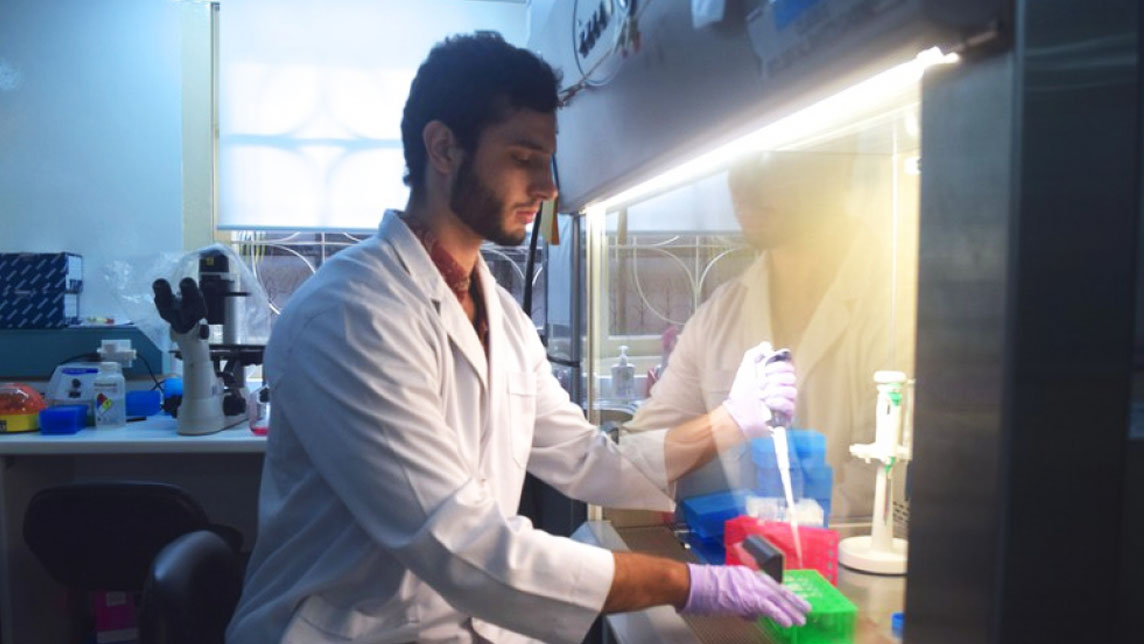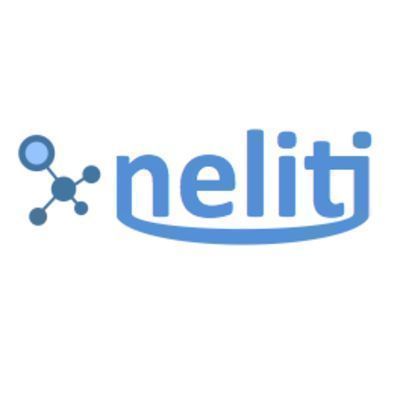Neliti is an online repository for Indonesia-related research by local and foreign institutions. Nearly four years after its prototype was released, it now holds institutional repositories from over 700 academic institutions and close to 1,800 academic journals. Many of the articles and journals accessible on Neliti were previously only available offline or siloed in individual institutions' internal networks.
The platform houses a wide range of content, including articles, datasets, books, conference papers, and policy papers from think tanks and government bodies. They are available in Bahasa Indonesia or English, and include research published outside of Indonesia, from, for example, India, Ecuador and the US.
The company's CEO and founder, Anton Lucanus, is a former researcher who experienced firsthand the challenges of finding scientific literature in Indonesia and, conversely, how hard it can be to communicate important research to the relevant stakeholders. An Australian national, Lucanus is currently based in Jakarta. He met up with CompassList at the National Library of Indonesia, where he shared Neliti's story and his views on the local research climate.
This interview has been edited for length and clarity.
Could you describe how your product works, both for end-users (researchers) and for universities or academic institutions?
For users browsing, it’s pretty simple. Readers can visit Neliti, browse through journals and read papers free of charge. For universities and journals, when they want to join they contact us and request to host a journal or a repository on Neliti. They pay a monthly fee, and they can run their own repository or journal on the Neliti platform. The monthly fee depends on the institution size and budget. Vocational academies don’t have the kind of budget that major universities with millions of papers, so we have to cater to them differently.
What are the greatest benefits of your product for universities and institutes, who I assume are your primary customers?
Firstly, our product makes it easier for them to build a repository website and put their content online. You need to remember that many of these institutions don’t have a website for their libraries or journals, and our product helps them build one. Secondly, it’s content distribution. When an article is uploaded to Neliti, a lot of things happen. It goes up to the Neliti website, which is read by 3–5 million people every month. It is also distributed automatically to 10 other databases, like Google Scholar and Indonesia OneSearch [a repository developed by the National Library, which hosts content from various institutions and libraries].
The other part of the content distribution is feeding it to the media. The media like to report about scientific findings, but they don’t usually know what the findings are; they don’t have access to a list of recent research or researchers. So we send a newsletter every month to The Conversation [an online magazine run by researchers] that includes a list of the latest research in Indonesia. They look at that list, they choose the research they find the most interesting and report about it.
You spent some time as an intern at the Eijkman Institute in Indonesia, where you started Neliti in April 2015. What drove you to start the company?
It started due to the problems I experienced during my internship at Eijkman. They were discovering a lot of important scientific data, like the rate of Japanese encephalitis in West Java. It’s important stuff, but the data that they had was just being kept in the lab; they didn’t have a way to get the data online, where it can be used and made use of by the World Health Organization, the Ministry of Health and all those other health bodies.
So the first version of Neliti was created in 2015. It was just a basic website, a small digital library for our lab only, where I put reports and data up. Eventually more and more institutions asked to join this digital library, and today we have almost 800 digital libraries.
Why Indonesia?
Firstly, I love Indonesia; I’m from Australia, so Indonesia is like my "tetangga" (neighbor).
Second, the size of the market. The market is massive: 122,000 libraries, the second most in the world behind India; 4,000 universities; about 500 research institutes and over 20,000 academic journals. These numbers are massive, probably within the top three in the world.
Thirdly is the size of the problem. Of all this research that gets produced, only approximately 30% is available online. This research is important stuff; knowledge that can be used to solve health problems, social problems, economic problems in Indonesia. But if the research isn’t online and available widely and freely, of what use is it, just being stored away?
What skills and expertise did you need to start the company, and how did you get access to those, especially as the company scaled?
At the start, in early 2015, the website I built was very basic. All users could do was sign up, log in and upload articles. But when I met Andrew [Wrigley, who went on to partner with Lucanus] in 2016, the tech side of things really started to get to the next level. By coincidence, Andrew had been working on projects in Australia in the field of academic publishing, including new algorithms for detecting citations and ranking academic work. He had a similar passion for opening up the industry and we discovered we shared the same passion.
Could you tell us how your relationship with the National Library started?
Around the start of 2017, I had just moved back to Jakarta from Singapore. I cold-called the National Library, and we met up. They’re very ambitious about library innovation; if they see a startup that wants to get Indonesian books and research online, they’re going to want to help, right? Over the course of one to two years, the relationship really developed and thrived to the point that we got a grant from them, and they still support us today by reaching out to libraries across Indonesia.
Are there any other companies working with the Library in similar projects?
The closest thing to our business in Indonesia are academic databases like Indonesia OneSearch, Portal Garuda and LIPI’s (Indonesia Institute of Sciences) own scientific journal database. But none of these databases allow the journal or repository administrator to create their own website and upload and edit everything. What they allow you to do is, if you already have a website for your journal, they can get that content indexed on their database; but they don’t help create the website itself.
The other sort of competition is Open Journal Systems (OJS) consultants. OJS is open source software, which allows you to develop your own journal websites and most of what Neliti does. These consultants approach universities and journals, offering their services to build online repositories using OJS. OJS has some challenges and deficiencies, and Neliti aims to better it.
From what I understand, you’re planning to source for investor funding this year. You also received seed funding from the Indonesian National Library. Could you tell us more?
We’ve been bootstrapped to date; we have some small grants, and we’re open to investor funding and equity-free grants. The amount of funding we received from the National Library is undisclosed; we got it at the start of last year. Given the social impact of our company, we’re currently targeting foundations and other philanthropic initiatives.
Aside from grants, what kind of support is important for companies like yours?
Partnerships are very important. There are certain companies that you would have to be partners with in order to survive and thrive, for example Crossref. We’d also like to partner with the Ministry of Research, Technology, and Higher Education, but we haven’t yet. These partnerships are not just strategic, they are fundamental to doing well.
It’s actually surprising that you haven’t partnered with the Ministry since it would benefit them a lot.
We just haven’t approached them yet. We’re thinking that in 12–24 months our product would be better, more impressive for them to consider a partnership.
How is the company doing in terms of revenue?
In terms of indexing, we’ve indexed 700+ libraries and 1,800+ journals. The number of paying customers is much smaller, but we’ve only released the paid features in November last year. So far over 20 institutions are already using the paid version, so we’re growing at a rate of 4–5 paying organizations per month.
Aside from the information access problem that you’re trying to solve with Neliti, what do you believe are the most significant roadblocks that are holding back academic research in Indonesia?
Language is a big problem. It’s hard to write proper academic English, even among Indonesians who speak good English. Often to get the English edited, you’d have to pay academic translation companies a huge amount of money, or you’d have to partner with universities from overseas.
Resources is another big one. If you look at a country like Australia, where I’m from, almost every university has good facilities for performing academic research: well-funded labs, tools, collaborations. In Indonesia, all these resources are only available to a select few institutions. Out of the 4,000 universities here, who knows how many actually have world-class research facilities.
Another problem is plagiarism. There’s a culture of plagiarism that the government and academia is trying to root out. Then you have a lack of robust peer review process. Out of the 20,000 academic journals in Indonesia, how many are actually performing a really rigorous peer review process with experts in the field? Would it be better to have, for example, 1,000 academic journals that have a really rigorous peer review process?
Speaking of language, I read that Neliti had a translation service. Is that still ongoing?
That was in the past; we realized we wanted to focus more on the tech side of things. We plan to reopen that service, but it would likely be through a partnership rather than in-house.
How do you envision Neliti in the next two or three years?
We’re really going for capturing our market in two or three years. In three years, we want the majority of Indonesian repositories and journals to be run using the Neliti software. We really want to build a research community here; we’ve got a lot of features and initiatives in the pipeline. But for the next two or three years, we’re going to focus on developing the tools and expanding our reach.
More immediately, we’re building the tools to make each institution or journal website editable by the administrator. Right now, every website built has the same template. They can’t customise it, add new page, remove the Neliti branding, add contact information, etc. We want it to be able to function more like a normal WordPress website, a kind of a white-label product.
CORRECTION: An earlier version of this article misstated that Anton Lucanus started Neliti with Andrew Wrigley in April 2015. Lucanus has clarified Wrigley's status and asked us to make clear that Wrigley joined the company as Co-founder in 2016, but has since left his position at the company.














